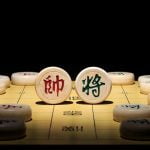Are you ready to embark on an exciting journey into the world of Arabic board games? Whether you’re a beginner or a seasoned gamer looking to explore new horizons, these captivating and culturally-rich games offer a unique experience that will keep you thoroughly engaged.
In this article, we will delve into the world of Arabic board games and uncover why they are perfect for beginners. We’ll also take a closer look at the top 5 games that are ideal for those just starting out in this fascinating realm.
Arabic board games provide an excellent avenue for beginners to immerse themselves in a new gaming experience while also gaining insights into the Arabic culture and traditions. These games not only offer entertainment but also educational benefits, making them a perfect choice for individuals who are interested in learning about the Arabic language and heritage. With their rich history and engaging gameplay, they provide a refreshing alternative to mainstream board games.
In the following sections, we will explore the reasons why Arabic board games are particularly suited for beginners. We’ll discuss how these games can enhance cognitive skills, encourage critical thinking, and promote social interaction. We’ll also delve into how they can serve as valuable tools for language learning and cultural exploration. So if you’re ready to take a leap into the mesmerizing world of Arabic board games, join us as we dive deeper into this fascinating topic.
Why Arabic Board Games Are Perfect for Beginners
Arabic Board Games offer a unique and effective way for beginners to learn the Arabic language. In this section, we will explore the various benefits of using Arabic board games as a learning tool.
Language Acquisition
One of the main advantages of Arabic board games for beginners is their ability to facilitate language acquisition. These games provide an immersive and interactive experience that promotes active learning. By engaging in conversation with other players, reading game instructions, and understanding game mechanics, learners are exposed to authentic Arabic language in context. This helps develop vocabulary, grammar, and comprehension skills in a fun and engaging way.
Cultural Understanding
Arabic board games also provide learners with an opportunity to gain cultural insight into Arab traditions and heritage. Many Arabic board games are inspired by folklore, history, or daily life activities specific to Arab culture. By playing these games, learners can better understand the values, customs, and traditions of Arab societies. This cultural understanding enhances language learning by providing learners with a deeper appreciation for the linguistic nuances and contextual meanings of Arabic words and phrases.
Social Interaction
Another benefit of Arabic board games for beginners is their ability to promote social interaction. Learning a new language can feel isolating at times, but playing board games allows learners to connect with others who share their interest in language acquisition and gaming.
Collaborative gameplay encourages communication between players, fostering opportunities for practice and improvement in conversational skills. Additionally, playing board games provides a supportive and non-judgmental environment where beginners can make mistakes, learn from others, and build confidence in speaking Arabic.
By utilizing Arabic board games as a learning tool, beginners can enjoy numerous benefits including enhanced language acquisition, cultural understanding, and improved social interaction. These unique advantages make Arabic board games an excellent choice for anyone beginning their journey into mastering the Arabic language.
Top 5 Arabic Board Games for Absolute Beginners
Arabic Board Games are not only a fun way to spend time with friends and family, but they can also be a fantastic tool for beginners to learn Arabic. This section will take an in-depth look at the top 5 Arabic Board Games that are perfect for absolute beginners.
1. “Alphabet Soup”: This game is designed to help players familiarize themselves with the Arabic alphabet. It comes with letter cards that have corresponding pictures on them. Players must match the letters with the correct pictures, making it an engaging way to learn both the alphabet and vocabulary at the same time.
2. “Arabic Scrabble”: Similar to the classic Scrabble game, Arabic Scrabble challenges players to create words using Arabic letters. Not only does this game help improve language skills, but it also encourages strategic thinking and problem-solving.
3. “Backgammon (Tawle)”: A traditional Middle Eastern board game, Backgammon is popular among Arab communities. The rules are simple, yet the gameplay requires critical thinking and decision-making skills. Playing Backgammon can provide beginners with exposure to common Arabic words and phrases as they communicate with their opponents during gameplay.
4. “Maktoob Ya Asfoura (Letter Hunt)”: This game is specifically designed for young children who are learning Arabic. It involves finding hidden letters in colorful illustrations while following a storyline. The interactive nature of this game makes it enjoyable for kids and helps them develop letter recognition skills.
5. “Kalimat (Words)”: Kalimat is an Arabic word association game where players need to come up with words related to a given category within a time limit. It is a great way for beginners to expand their vocabulary and practice forming sentences while having friendly competition.
These top 5 games not only make learning Arabic more enjoyable but also assist beginners in acquiring important language skills such as vocabulary building, letter recognition, sentence formation, critical thinking, and strategic reasoning.
Step-by-Step Guide to Playing Arabic Board Games
Playing Arabic board games can be a fun and immersive way to explore the Arabic language and culture. In this section, we will provide a step-by-step guide on how to play these games, from setting them up to developing effective strategies.
The first step in playing an Arabic board game is to familiarize yourself with the rules and components. Each game will have its own unique set of rules, so take some time to read through the instructions thoroughly. Pay attention to any special cards or pieces that may be used during gameplay.
After you have familiarized yourself with the rules, it’s time to set up the game board. Lay out the board and place any tokens or cards in their designated spaces. Make sure each player has their own playing pieces or markers and that everyone understands their starting positions.
Once the board is set up, determine who will go first. This can be done by rolling a dice or choosing randomly. Take turns clockwise around the table, following the instructions on each space you land on. Some games may require players to draw cards or answer questions as they progress through the board.
As you play, keep in mind that strategy is key to winning Arabic board games. Pay close attention to your opponents’ moves and try to anticipate their next move. Look for opportunities to block them or gain an advantage over them. It’s also important to manage your resources wisely and make strategic decisions that will lead you closer to victory.
By following this step-by-step guide, you’ll be able to dive into the world of Arabic board games with confidence. Remember, practice makes perfect, so don’t be discouraged if you don’t win right away. With time and experience, you’ll develop your skills and become a master of these engaging and culturally rich games.
Arabic Board Games for Language Learning
Arabic language learning can be challenging, especially for beginners. Traditional methods of learning, such as textbooks and flashcards, can become monotonous and fail to capture the interest and engagement needed for effective learning. This is where Arabic board games come in. Incorporating these games into your language learning journey not only makes the process more enjoyable but also enhances your Arabic skills in a unique way.
Benefits of Using Arabic Board Games for Language Learning
Playing board games in Arabic offers several advantages for language learners. Firstly, it allows you to practice your speaking and listening skills in a fun and interactive way. By engaging in conversations with other players or listening to instructions given in Arabic, you are exposed to authentic language use and pronunciation.
Additionally, playing board games incorporates visual aids, such as game boards and cards with written instructions or prompts, which reinforces reading comprehension skills. This hands-on approach to language learning promotes contextual understanding of vocabulary and sentence structures.
Furthermore, Arabic board games often include cultural references or scenarios that provide insights into Arab traditions, customs, and daily life. By immersing yourself in these aspects while playing the game, you develop cultural awareness alongside language skills.
Popular Arabic Board Games for Language Learning
Several Arabic board games are specifically designed to facilitate language learning while ensuring an enjoyable gaming experience. Here are three popular options:
- Kalimat: This word-building game focuses on expanding vocabulary by creating words from available letters on the board. It offers different levels of difficulty, making it suitable for beginner to advanced learners.
- Alif Baa: Designed for beginners, this game introduces players to basic vocabulary through a matching exercise with colorful picture cards.
- Mastermind Arabic: Based on the classic code-breaking game Mastermind, this version challenges players to decipher secret words while practicing pronunciation and word recognition.
These games provide opportunities to actively engage with the Arabic language and reinforce skills across different language domains.
Playing Arabic board games for language learning fosters a supportive learning environment, encourages collaboration with other players, and promotes the use of Arabic in a relaxed and enjoyable setting. By incorporating these games into your language learning routine, you can enhance your Arabic skills while having fun.
Cultural Insights
Arabic board games not only provide amusement and entertainment, but they also reflect the rich heritage and traditions of the Arab world. These games offer a unique insight into Arabic culture, allowing players to immerse themselves in the traditions and values of this vibrant community. By playing Arabic board games, individuals can gain a deeper understanding of the Arab way of life while having fun and engaging with others.
One aspect that is often reflected in Arabic board games is the emphasis on social interaction. Many traditional Arabic games are designed to be played in groups, encouraging social bonding and fostering a sense of community. For example, “Tawleh” or “Backgammon” is a popular game that requires two players to compete against each other using strategy and skill.
This game has been passed down through generations and continues to be enjoyed by people across the Arab world. By playing Tawleh or other similar board games, individuals can experience the joy of gathering with friends or family members and create lasting memories.
Additionally, Arabic board games often incorporate elements from Arab history and folklore. These games serve as educational tools that introduce players to various stories, characters, and historical events from the Arab world. An example of such a game is “Saduq al-Ma’arif”, commonly known as “Truth or Lie”.
This game challenges players’ knowledge about different aspects of Arab culture, including literature, art, music, and geography. By engaging with these cultural aspects through gameplay, individuals can deepen their appreciation for Arab history and traditions.
Furthermore, Arabic board games frequently revolve around teamwork and cooperation rather than competition alone. This aspect reflects the strong value placed on collaboration within Arab society. A popular cooperative board game called “Al-Qatam” requires players to work together strategically in order to solve puzzles or complete quests. This promotes unity and mutual support among participants as they must communicate effectively and pool their resources to achieve common goals.
Cultural Insights: How Arabic Board Games Reflect Arab Heritage and Traditions
| Aspect | Influence on Arabic Board Games |
|---|---|
| Social Interaction | Many Arabic board games are designed for group play, emphasizing community bonding. |
| Arab History and Folklore | Board games incorporate elements from Arab history and traditional stories, providing educational opportunities. |
| Teamwork and Cooperation | Arabic board games often focus on collaborative gameplay, reflecting the value placed on unity within Arab society. |
Where to Find Arabic Board Games
As interest in Arabic board games grows, it becomes important to know where these games can be found. Whether you prefer the convenience of online shopping or the experience of browsing through a physical store, there are various options available for purchasing Arabic board games.






